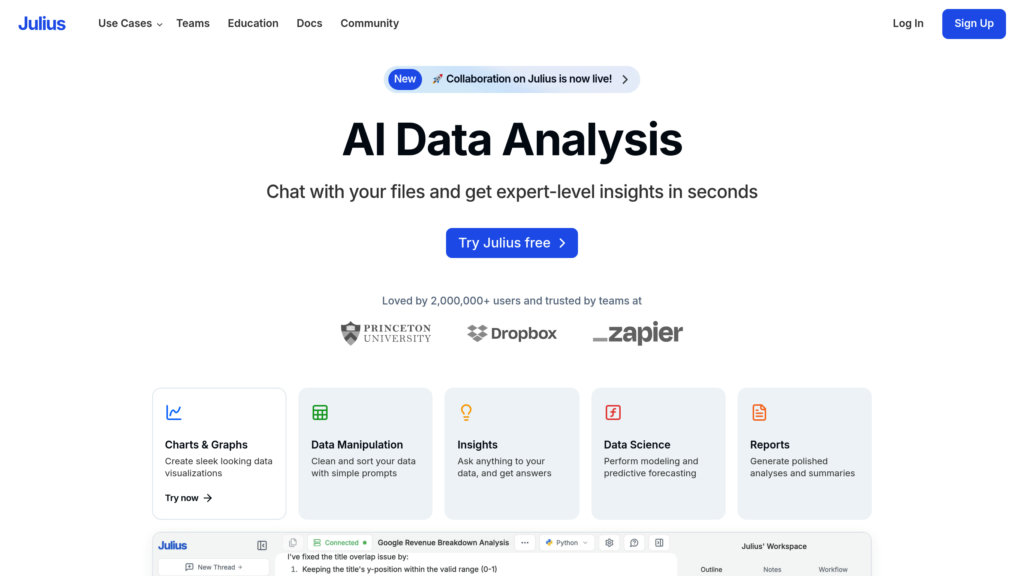Julius AI
Julius AI: Analyze data through conversation, create insights and visuals
Introduction
What is Julius AI?
Julius AI is a sophisticated, AI-powered platform for data analysis that streamlines the comprehension, graphical representation, and forecasting of structured information. Users can import data from sources like Excel, CSV, and Google Sheets, and then explore it using everyday language. The platform automates intricate processes including data purification, in-depth statistical evaluation, construction of machine learning models, and the generation of interactive visuals, thereby opening up advanced data science to non-technical experts. Its conversational interface leverages various AI technologies and customization options to deliver rapid, intuitive, and practical insights.
Key Features:
• Conversational Data Interaction: A chat-based system allows users to query their data in plain language, obtaining immediate analytical results and graphical representations.
• Extensive Visualization Capabilities: Creates a range of visual outputs like charts, graphs, heatmaps, and animated GIFs to vividly illustrate data patterns and findings.
• Sophisticated Predictive Analytics: Develops forecasting models, including SARIMA for time-series data, helping users project future outcomes from past trends.
• Automated Data Refinement: Handles preprocessing chores by automatically cleaning and transforming data to guarantee precision in analysis.
• Flexible AI Engine and Customization: Supports multiple AI algorithms such as GPT-4, Anthropic Claude, and Mistral 7B, with adjustable personas, communication styles, and language settings for diverse applications.
• Robust Security and Collaboration: Prioritizes data privacy with stringent access management and transient file storage, alongside easy exporting and sharing of analyses and visuals.
Use Cases:
• Business Intelligence: Sales and marketing departments can evaluate customer information, monitor key performance indicators, and predict sales patterns to refine business tactics.
• Healthcare Analytics: Medical practitioners can examine patient histories and clinical data to detect trends and enhance treatment protocols.
• Academic Research: Scholars can process, analyze, and graphically represent survey or experimental data to reveal correlations and outliers.
• Environmental Monitoring: Specialists can track and animate data related to energy usage or ecological changes over periods for informed policy-making.
• Workforce Analytics: Organizations can assess productivity measures across different teams and divisions to boost operational effectiveness.
